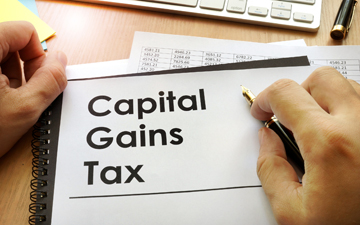Employees Beware: Upcoming legislation affecting capital gains will impact employee stock options

David J Rotfleisch explains how Department of Finance changes to legislation, which are expected to be retroactive to June 25, 2024 will affect stock options
Introduction
 |
David J Rotfleisch, CPA, JD is the founding tax lawyer of Taxpage.com and Rotfleisch & Samulovitch P.C., a Toronto-based boutique tax law corporate law firm. |
Employee stock options are a benefit offered by companies to their employees, giving them the right to purchase company stock at a set price (known as the exercise or strike price) after a certain period of time. The company grants stock options to employees as part of their compensation package. These options are usually subject to a vesting schedule, which means the employee must stay with the company for a certain period before they can exercise the options. Once the options have vested, the employee can choose to exercise them, which means they can buy the company stock at the exercise price. If the market price of the stock is higher than the exercise price, which is typically the only time when it makes sense to exercise them, the employee can buy the stock at a discount, potentially making a substantial profit. Typically, employee stock options cannot be sold, unlike standard listed or exchange traded options.
The old way of taxing employee stock options
Typically, there are no tax consequences when stock options are initially granted. However, when you exercise the options, the difference between the fair market value (FMV) of the shares at the time of exercise and the price you pay for them (the exercise or strike price) is treated as a taxable benefit and included in the employee's income.
This benefit is considered employment income and is taxable in the year you exercise the options. It will be reported on your T4 tax slip alongside your salary, bonus, and other employment income. However, in the case of employee stock options where the employer is a CCPC, there is a more favourable tax treatment. Rather than the benefit from the exercise of the options be included in the employees income that year, the taxation of the benefit is deferred until the shares are disposed of.
Upcoming changes to capital gains tax will impact taxation of employee stock options
Upcoming modifications to the Income Tax Act will impact how employee stock options are calculated. The Department of Finance has announced these changes, which are expected to be retroactive to June 25, 2024. Among these changes are the capital gains tax rate increase which will increase the income inclusion rate for corporations, trust, and individuals to 2/3 for amounts over the $250,000 annual threshold.
Changes to stock option tax calculations were included in the legislation, which was released on June 10, 2024. It is crucial for employees, employers, and their advisors to be aware of these changes to ensure compliance with the new regulations and to adjust their tax planning accordingly. The method of calculating the employee's benefits remains unchanged, but the method of calculating the deduction is altered by the new rules. There is now a $250,000 annual benefit threshold for each taxpayer where a 1/2 deduction is permitted. Any benefit above this $250,000 threshold will only qualify for a 1/3 deduction.
As an example, under the old rules, if employees had a stock option benefit of $500,000 in a taxation year, they would have been entitled to a 1/2 deduction (i.e., $250,000). Under the new deduction calculation rules, for the first $250,000, the employee would be entitled to a 1/2 deduction (i.e., $125,000), plus a 1/3 deduction of the other $250,000 (i.e., $83,333). This brings the total deduction to $208,333 under the new rules compared to $250,000 under the old rules.
Pro Tax Tip: Both regular capital gains and stock options contribute to the $250,000 annual limit
This $250,000 annual limit for a 1/2 deduction applies both in respect of stock options and capital gains income, meaning that if an employee has reached the $250,000 annual threshold through capital gains alone, then all stock options benefits in that taxation year will only be entitled to a 1/3 deduction.
If the limit has been reached in a taxation year through a combination of stock options benefits and capital gains, employees can decide how to allocate the $250,000 1/2 deduction between their stock option benefits and other capital gains. These changes mean that employees will now need to plan carefully around this $250,000 annual threshold.
FAQs
Can stock options be designated to a spouse or other relative?
Generally, employee stock options are personal to the individual who receives them and cannot be directly transferred or designated to a spouse or relative. When shares are transferred to other individuals, including a registered plan, corporation, or trust, you may be deemed to have disposed of those shares. Even in situations where shares are transferred on a rollover basis, there can be a disposition that may give rise to a tax liability for the taxpayer.
What happens if I hold onto the shares after exercising the options?
The benefit from the stock options is usually added to the adjusted cost base (ACB) of your shares. This ensures that the benefit is not taxed again when you later sell the shares. Consequently, the ACB of your shares will include both the exercise price and the stock options benefit, making the ACB approximately equal to the FMV of the shares at the time you exercised the options.
When you eventually dispose of the shares, you will pay tax on the difference between the sale price and the ACB.
David J Rotfleisch, CPA, JD is the founding tax lawyer of Taxpage.com and Rotfleisch & Samulovitch P.C., a Toronto-based boutique tax law corporate law firm and is a Certified Specialist in Taxation Law who has completed the CICA in-depth tax planning course. He appears regularly in print, radio and TV and blogs extensively.
With over 30 years of experience as both a lawyer and chartered professional accountant, he has helped start-up businesses, cryptocurrency traders, resident and non-resident business owners and corporations with their tax planning, with will and estate planning, voluntary disclosures and tax dispute resolution including tax audit representation and tax litigation. Visit www.Taxpage.com and email David at david@taxpage.com.
Read the original article in full on Tax Law Canada. Author photo courtesy Rotfleisch & Samulovitch P.C. Title image: iStock (Hands holding documents with title capital gains tax CGT).
.









(0) Comments